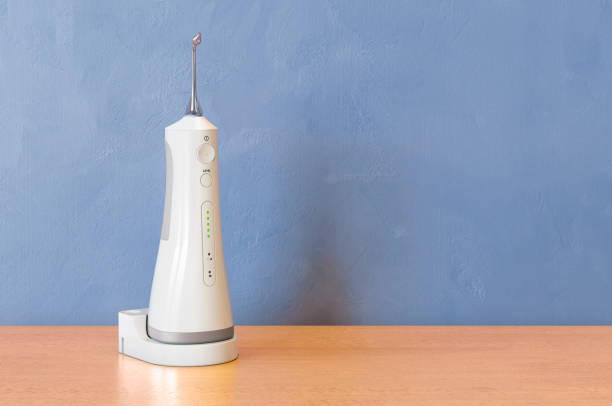Maintaining good oral hygiene is essential for overall health and well-being. While brushing your teeth twice a day is a crucial part of any oral care routine, it’s often not enough to thoroughly clean between teeth and along the gumline. This is where a water flosser comes in. Unlike traditional string floss, which can be cumbersome and difficult to use, a water flosser offers a more convenient and effective way to remove plaque and debris from hard-to-reach areas of the mouth.
In this comprehensive guide, we’ll explore the many benefits of using a water flosser as part of your daily oral hygiene regimen. From promoting healthier gums to reducing the risk of cavities and gum disease, water flossers offer numerous advantages for achieving a brighter, healthier smile.
Benefits of Using a Water Flosser
1. Removes Plaque and Debris
One of the primary benefits of using a water flosser is its ability to effectively remove plaque and debris from between teeth and along the gumline. The high-pressure stream of water generated by the device helps to dislodge food particles and bacteria, flushing them away and leaving your mouth feeling clean and refreshed.
Unlike traditional floss, which relies on manual dexterity to navigate tight spaces, a water flosser does the work for you, making it easier to achieve a thorough clean.
2. Promotes Healthier Gums
Regular flossing is essential for maintaining healthy gums and preventing gum disease. However, many people find traditional flossing techniques uncomfortable or challenging to perform correctly. Water flossers offer a gentler alternative that is less likely to cause irritation or bleeding gums.
The pulsating action of the water stream helps to massage and stimulate the gums, promoting circulation and reducing inflammation. With consistent use, a water flosser can help keep your gums healthy and free from infection.
3. Reduces Risk of Cavities
In addition to promoting gum health, using a water flosser can also help reduce the risk of cavities and tooth decay. By removing plaque and bacteria from between teeth and along the gumline, water flossers help to prevent the buildup of tartar, a hardened form of plaque that can lead to cavities.
This thorough cleaning action, combined with regular brushing and dental check-ups, can significantly decrease your likelihood of developing tooth decay and other oral health issues.
4. Freshens Breath
Bad breath, or halitosis, is a common concern that can be caused by food particles, bacteria, and plaque lingering in the mouth. While brushing and mouthwash can help freshen breath, they may not always reach all areas of the mouth effectively.
Water flossers offer a more comprehensive approach to oral hygiene by flushing out odor-causing bacteria and debris from hard-to-reach places. Regular use of a water flosser can help keep your breath smelling fresh and your mouth feeling clean throughout the day.
5. Convenient and Easy to Use
One of the biggest advantages of using a water flosser is its convenience and ease of use. Unlike traditional floss, which requires manual dexterity and can be awkward to maneuver, water flossers are simple and straightforward to operate.
With just the press of a button, you can deliver a steady stream of water to clean between teeth and along the gumline. Many water flossers also come with adjustable pressure settings, allowing you to customize the intensity of the water stream to suit your comfort level and oral health needs.
Conclusion
Using a water flosser into your oral hygiene routine offers numerous benefits for achieving and maintaining a healthy smile. From removing plaque and debris to promoting healthier gums and reducing the risk of cavities, water flossers provide a convenient and effective way to enhance your oral health. With regular use, you can enjoy a brighter, healthier smile and greater confidence in your overall oral health.
Frequently Asked Questions (FAQs)
1. How does a water flosser compare to traditional floss?
Water flossers offer a more convenient and effective alternative to traditional flossing techniques. Unlike string floss, which requires manual dexterity to navigate tight spaces, water flossers use a high-pressure stream of water to remove plaque and debris from between teeth and along the gumline. This makes them easier to use and more thorough in cleaning hard-to-reach areas of the mouth.
2. Can water flossers replace brushing?
While water flossers are an excellent addition to your oral hygiene routine, they are not meant to replace brushing. Brushing your teeth twice a day with fluoride toothpaste is still essential for removing plaque and bacteria from the surfaces of your teeth. Water flossers should be used in conjunction with brushing and regular dental check-ups for optimal oral health.
3. Are water flossers suitable for people with braces or dental implants?
Yes, water flossers are safe and effective for people with braces, dental implants, or other dental appliances. In fact, they can be particularly beneficial for individuals with orthodontic devices, as they can help remove plaque and food particles from around brackets, wires, and other hard-to-clean areas. Be sure to follow any specific instructions provided by your orthodontist or dentist for using a water flosser with braces or implants.
4. Are there any downsides to using a water flosser?
While water flossers offer numerous benefits for oral health, there are a few potential downsides to consider. Some people may find the sensation of the water stream uncomfortable or too intense, especially if they have sensitive gums or teeth. Additionally, water flossers require regular maintenance, including cleaning and refilling the water reservoir, which may be less convenient than traditional flossers for some individuals.
5. Can children use water flossers?
Yes, children can use water flossers under adult supervision. However, it’s essential to choose a water flosser with adjustable pressure settings and a smaller, more ergonomic design that is suitable for smaller hands and mouths. Encouraging children to use a water flosser as part of their oral hygiene routine can help instill good habits early on and promote lifelong oral health.



